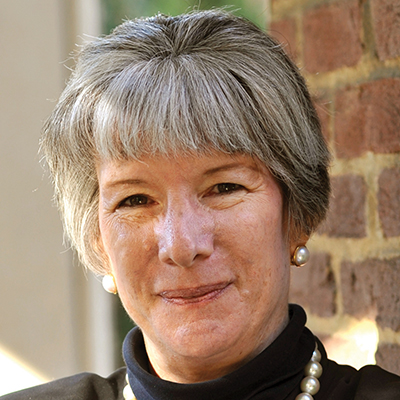Non habemus papam. We do not have a pope.
But we do have the ongoing ministry of our Pope-emeritus.
I have taken this step in full awareness of its severity and also newness, but with a deep peace of mind. Loving the Church also means having the courage to make difficult choices, suffering, having always before one the good of the Church and not oneself.
Allow me to return once again to April 19, 2005. The severity of the decision was precisely in the fact that from that moment on I had been given my task to carry out always and forever by the Lord. Always – he who assumes the Petrine ministry no longer has any privacy. He always and totally belongs to everyone, the entire Church.
My decision to forgo the exercise of active ministry does not revoke this fact. I do not return to private life, to a life of travel, meetings, receptions, conferences and so on. I do not abandon the cross, but remain in a new way near to the Crucified Lord. I no longer wield the power of the office for the government of the Church, but in the service of prayer I remain, so to speak, within St. Peter’s bounds.






Indeed Fr John the Seat of Moses or the “Chair of Peter” is empty
There is no one to “mind the house”
I am not so obtuse or so pedantic that I cannot appreciate the probable meaning of your expression “mind the house”, Anne. But I’d like to use it as the basis of a discussion. Along the lines as to whether it is problematic – and indicative of a problem within Catholicism – to expect the Pope to be the “minder” of the “house”. In investing the Pope with the responsibility for doing so, or with all our expectations on how we think the church ought to be, we do, I suggest, a great injustice to both the office and the person who assumes it. How can they not fail?
But more importantly, I’d like to suggest that this is where a fundamental problem rears its head: the notion and habit that someone else has to be the “gatekeeper”, the benchmark . I’ve been thinking about this today. I found myself thinking that in the end both death and faith are intensely and ultimately “private” solitary moments and experiences. They cannot be delegated; they cannot be reposed in the hands or judgment of others; they are both a uniquely personal and individual abyss.
In so many ways, despite the subtleties and nuances proposed by professional theologians and priests etc, Catholics are formed to surrender to someone else: a priest, a bishop or the Pope. Just read the blog commentaries: the liberals are constantly protesting this or that “ruling”; conservatives or traditionalists are constantly insisting that this or that pronouncement is THE definitive one, etc. They are, both, fixated on someone else’s responsibility, albeit in different ways.
It is understandable why “Catholics” who recognise this don’t simply become – officially – Protestants; Protestants also do the same in many cases, where some elusive entity called “the Scriptures” is concerned. No, those who recognise what I am saying are much more inclined to go much further into eclecticism or syncretism. Or Buddhism.
I don’t have any hopes or expectations for the next Pope, or two. I certainly daydream, though: I imagine a Pope who renounces any claim to infallibility for either himself or herself or the Church as a whole and then declares the love affair with Jesus officially open.
Of course, that would not be Catholicism, but could it not be Christianity in a positive direction?.
Dream away Stephen. You lost me when you mentioned “himself or herself” in respect of The Pope. Do you dream of Pope Joan as well? We don’t have women priests.
Seriously though, you come up with this motherhood statement about getting down to basics and declaring the love affair with Jesus officially open but in it you betray a politico/social agenda.
The love affair with Jesus has always been open. Look at the lives of the saints, read a few Papal encyclicals and thank Our Lord for them
Dear Philip, I suspect you were never mine to be lost in the first place (LOL). That’s okay though. What bemuses more is your comment that my comment “betrays a politico-social agenda”. Of course it does, but no more and no less than anyone else’s, even yours. The very fact of your disdain says something about yours. Religious affairs are political and social affairs in one dimension at least, so it is very inevitable. (sigh!)
I wish it weren’t so sometimes but I’ve come to realise that it is impossible to be concerned about religion and God without being very concerned about humans and the state of things. Part of us inclines to the contemplative and mystical, the other part compels us to the practical and here and now. And some people want one kind of society, others another.
The point about my own post was not, incidentally, the issue of women priests as such or intended to deny the love affair of past spiritual saints. It was to prompt a pause about the way we speak of leaders, and Popes in particular and the way structures and hierarchies will follow our expectations. I don’t dream of a “Pope Joan” because I don’t think hoping for one is the point: hoping for a radical rethink of what God and revelation and being Christian means, is. Aesthetically, I am mediaevalist; theologically I am modernist; philosophically I am eclectic, and religiously I am syncretist. But don’t make the mistake of thinking – if you were so inclined – that I have muddled Catholicism – I know exactly what parts I agree with and what I don’t.
As I said to Anne, I do try to present another side or angle. Even if you think you have heard it all before, you haven’t because it will be expressed in just my own way.
I’m not sure how God does this, but anyway…God bless you.
Very astute Stephen. I think you’ve identified a central point not only of Catholicism, but also Christianity. Obedience.
Our Lord was obedient unto death, even death on a cross. His obedience counteracted the disobedience of our first parents.
Christian are called to do something similar. To obey God, and in obeying God recovering the freedom which was lost to by sin. The model in this is the mother of Jesus, whose fiat is an example and model to every Christian.
Mary models a creative and critical obedience I think. She is not servile. She questions Gabriel. She thinks for herself. And only then, does she unite her will to God’s. In so doing, her love affair with God is deepened, but it always remains open. Her fiat is perfected every subsequent day of her life. She converts every day. She unites her will more closely with God’s, every day. Until one day it leads her to the foot of the cross.
In general terms, this is the vocation of every Christian.
Now insofar as the Church is a sacrament, we are called to obey the Church. The danger, of course, is that the Church becomes a substitute for God, or at least a crutch to our critical thinking and discernment. At which point our obedience becomes idolatrous or servile or both.
But that’s not the Church’s fault. That’s a personal struggle for every Christian. And it can be hard to judge how other people are progressing in that struggle. Many of the saints, for example, were probably perceived by their critics to be servile in their obedience to the pope. But their sanctity demonstrates something else.
I think, Stephen, that the vision you allude to doesn’t only redefine Catholicism. It redefines Christianity. And it throws the baby out with the bathwater.
Thanks Father John your response to Stephen is much much more generous than I would have written.
Setphen we are not even on same page of our understanding of the Church which Jesus founded.
Stephen what are you saying?
Whew! Considering I appreciate all the generosity I can get, I’m eternally grateful then, that Father John got in first!
Seriously though, Anne, I fully acknowledge we are on different pages. But I can’t help sometimes probing at what I think are underlying or recurrent patterns to what we do, and so I attempt to articulate them to invite further thought on this or that.
Yes, my “daydream” was a little provocative, but, when all is considered, it was consistent with my thesis on submission in the chemistry of faith and what I think the Church was intended to be or could be. (Goodness me, I don’t actually expect you to agree with me!)
Thank God you dont expect me to agree. Stephen How could I, we are reading a different church, a different Jesus and a different Scripture so it’s no wonder we cannot agree.
Nite
Thanks, Father John for your response. It’s a very good one. (You’ve understood what I’m getting at) .